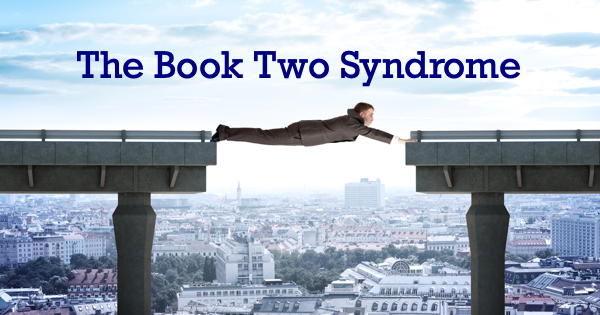 My blog today is addressed mainly to those of my colleagues who are writing a series or a trilogy, and it’s probably something you already know, but a reminder never hurts.
My blog today is addressed mainly to those of my colleagues who are writing a series or a trilogy, and it’s probably something you already know, but a reminder never hurts.
You’ve started off your series with a great book that plunged us immediately into the time and place. Something spectacular has happened to start a chain reaction that will play out over the next few volumes. And finally, you stuck your ending, and readers are breathing heavily and saying, “Can’t wait to read the next book!”
Then Comes Book Two…
Intermediate books—neither the opening burst nor the satisfying final conclusion—present several special problems. One is the need to recap past information so a reader can jump into the series at any point and make sense of the action. The other is is the ending/not ending. It’s the ending of one arc—let’s say the “mystery du jour” (think of the conclusion of an episode in a TV series). But many larger arcs continue, unconcluded, that will only be dealt with in later volumes. So the ending may not seem very satisfying.
Jumpin’ On In
If there is a continuing protagonist and characters that surround her, it’s important to give some identification or backstory for readers who haven’t read book one. The same thing could be said of geographical setting or other details. If this Book Two has any pretensions at all of being freestanding, then you’ll need to sketch in enough background for newcomers not to feel at sea.
But how much do you describe someone who has already had their portrait painted in a previous book before series readers start going “ho-hum”? How many references to actions in the previous volume are appropriate, and how do you present them? Alas, there’s no one right answer, but it’s something that needs a little thought.
A rule of thumb: if you can work in these details without telling any more than you have to, it’s better. Try to present the catch-up facts as recollections of characters or tie them on with a thread of grammatical continuity: “the forest was still as black and menacing as he remembered.” This won’t work everywhere, but it can come in handy.
Ending/Not Ending
Book Two is a bridge between Book One and Book Three. The action that was launched in the first volume and will be concluded in the last one has to play out here in the middle. Middles, as any author knows, are especially difficult; they have a lamentable tendency to be flabby. But while a flabby chapter or two isn’t likely to drive away readers, a flabby book may well do it. I know I’ve read many a trilogy where I came away thinking, “I didn’t like this one as well.” It suffered from Book Two Syndrome.
Perhaps the problem is salting it with so many adumbrations of action to come in the next volume that this one seems incomplete. Perhaps the ending is rushed or artificial—you’re just trying to get through it and get onto the more exciting part over the horizon.
Sometimes, it’s true, a series may be essentially a single long plot divided up into pieces. But more often, each volume has a complete story in it despite ongoing arcs. Treat that story with the dignity it deserves. Give it a satisfying, socko ending.
As with any aspect of writing, there’s no magic yardstick by which to judge our Work in Progress. Sometimes, just being mindful of the pitfalls is enough to get us a cross the chasm safely. So give some special TLC to Book Two. Make it carry its own weight while handing readers over to the next volume, raring to go!

Phyllis Cherry
Thanks so much. I just finished Book II of my White Feathers Academy series and had a terrible time with the ending. Fortunately the published liked it enough to send the contract, but I still have edits to do so every piece of wisdom helps. I like your comments about remembering what happened in Book I and avoid the need to repeat everything – backstory is always lurking.
Niki H Kantzios
Glad to confirm your instincts. Good luck with your series!
Irene Kessler
Thanks – just what I need for my memoir.
niki kantzios
Golly, that’s got its own special set of problems, doesn’t it? Good luck!
Amarilys Rassler
Thank you. Very good information.